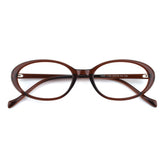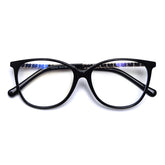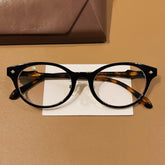Does medicare cover eyeglasses?
If you rely on Medicare for your healthcare needs, you may wonder if it covers the cost of eyeglasses. Vision care can be a significant expense, and understanding what Medicare offers can help you plan effectively. In this blog, we’ll explore whether Medicare covers eyeglasses and what options are available to minimize out-of-pocket costs.
- Which medicare can cover eyeglasses?
- How to save on glasses if your medicare doesn't cover them?
- Does Sllac support FSA or HSA?
- How do I redeem my FSA or HSA dollars at Sllac.com?
1. Which medicare can cover eyeglasses?
- Medicare(Part A): does not include routine vision care, including eyeglasses or contact lenses;
- Medicare(Part B): does not include routine vision care, including eyeglasses or contact lenses; only cover one pair of eyeglasses or contact lenses after you undergo cataract surgery that includes the implantation of an intraocular lens;
- Medicare Advantage(Part C): offered by private insurers; often cover routine eye exams and may provide an allowance or partial coverage for eyeglasses and contact lenses.
2. How to save on glasses if your medicare doesn't cover them?
- Optical Insurance Add-Ons: Some private insurers offer vision care plans that you can purchase separately to cover routine vision needs.
- Discount Programs: Look into vision discount programs or cards, which can lower the cost of eyeglasses and exams.
- Online Retailers: Websites like Zenni Optical, Eyebuydirect and us often offer affordable eyeglasses.
3. Does Sllac support FSA or HSA?
- FSA: flexible spending account;
- HSA: health savings account;
4. How do I redeem my FSA or HSA dollars at Sllac.com?
If you have an FSA or HSA debit card you can simply use it to buy any eligible product at Sllac. If you don’t have a debit card all you need to do is print off the receipt of your order and submit it to your provider along with any other documents required. Don’t forget that non-prescription eyewear isn’t covered by FSA or HSA plans.
While Original Medicare doesn’t typically cover eyeglasses, there are exceptions for post-cataract surgery and options through Medicare Advantage plans. Understanding your coverage and exploring supplemental options can help you manage the cost of eyeglasses. Always consult with your Medicare provider to get the most accurate and personalized information about your benefits.












